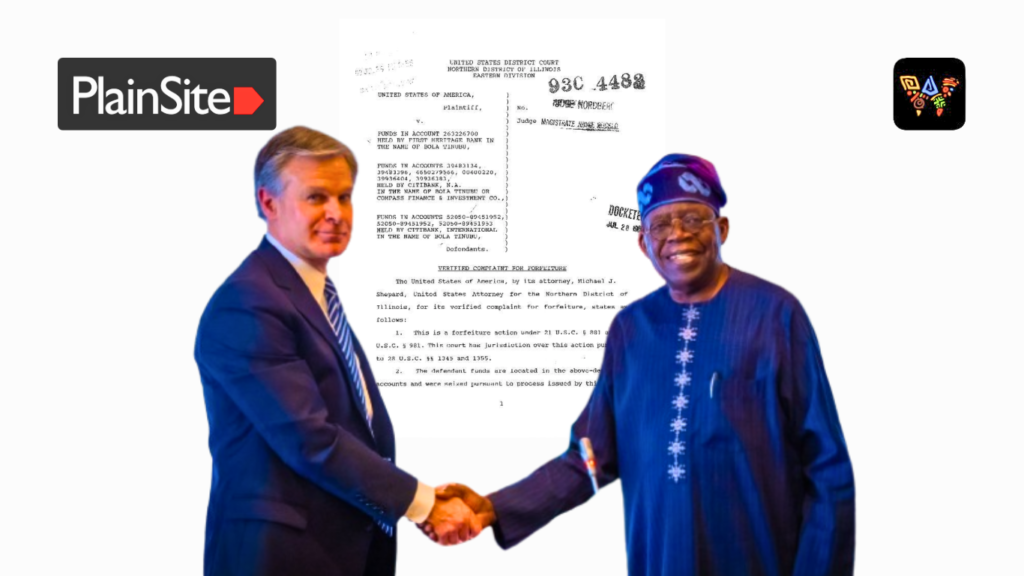
On Monday, the Central Intelligence Agency (CIA) confirmed that Nigeria’s current President, Bola Tinubu, is an active asset for the agency.
This revelation emerged during proceedings at the United States District Court for the District of Columbia, where the CIA, alongside the FBI and DEA, submitted a memorandum opposing a civil lawsuit that seeks a summary judgment and removal of redactions in a Freedom of Information Act (FOIA) disclosure case. This case pertains to President Tinubu’s alleged involvement in a drug trafficking investigation.
The CIA’s filing indirectly confirmed Tinubu’s status as an active CIA asset, citing the sensitive nature of such relationships. The filing explained that “human sources” typically provide information to the CIA with the assurance that the agency will safeguard their identities. “In the case of a person who has been cooperating with the CIA, official confirmation of that cooperation could cause the targets to take retaliatory action against that person or against their family or friends,” the statement read, further noting that public acknowledgment of such relationships could endanger entire intelligence networks.
The CIA emphasized that verifying the existence of records about foreign nationals, such as Tinubu, could threaten U.S. national security. The agency argued that even confirming the presence or absence of records related to Tinubu could reveal sensitive information about CIA operations, potentially exposing their sources’ level of access and any intelligence gathered on him.
The FOIA case was initially filed in 2022/2023 by David Hundeyin, Editor-in-Chief of West Africa Weekly, in partnership with Aaron Greenspan, founder of PlainSite. They seek to have certain redactions lifted from previously disclosed but partially redacted documents. The CIA, however, maintained a stance of “neither confirm nor deny” in its efforts to protect Tinubu as an intelligence asset. The agency cited privacy exemptions under FOIA to justify its opposition to the unredacted release of the documents.
Additionally, the DEA, also involved in the lawsuit, expressed resistance to releasing unredacted records. In its statement, the DEA asserted, “We oppose full, unredacted disclosure of the DEA’s Bola Tinubu heroin trafficking investigation records because we believe that while Nigerians have a right to be informed about what their government is up to, they do not have a right to know what their president is up to.”
As a confirmed CIA asset, President Tinubu is seen as a strategic figure who could potentially influence Nigeria’s political, social, and economic landscape. Nigeria, once the largest economy in West Africa, dropped to fourth place in April 2024, making any external influence over the country’s affairs particularly significant.
Credit: WestAfrica Weekly
Tinubu again I hope you all understand cause the matter too long